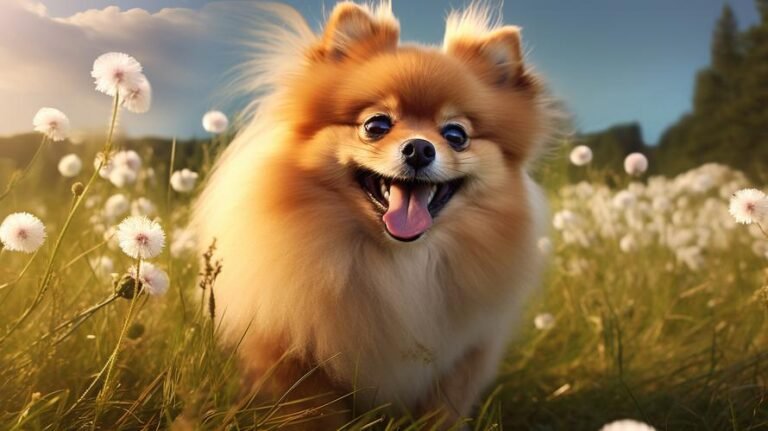Pomeranians boast grandeur personality packed in a toy-sized body. Renowned for their remarkable intellect and irresistible cuteness, these bright-eyed little wonder pets make an outstanding member of any household. Their vibrant personality brims with a delightful charm that never fails to steal hearts. To preserve this cheerfulness, it is essential to ensure their nutritional needs are well catered for—important insight that not everyone is aware of, is that Pomeranians may require special diets tailored to their unique needs.
Yep, you read that right. This seemingly frivolous fact is central to your Pomeranian’s health and happiness. Still, you might be scratching your head thinking, “But isn’t all dog food the same?” The short answer is—a resounding no. Now, let’s dive deep into why these adorable balls of fur could do well with special food tailored to their unique characteristics.
A distinguishing trait of this toy breed is their small size. Weighing between three and seven pounds, Pomeranians land a spot on the list of the smallest dog breeds. Their pint-size frames come with a slightly complicated twist—they have a faster metabolic rate as compared to larger dogs. This simply means that they use up their energy more quickly, consequently leading to a higher calorie demand.
But hold your horses before you rush to stuff them with regular dog food! It’s not just about the calories—it’s about the source as well. Their dog food should strike a balance between meat-based proteins, carbs and fats. Now, why is that? Proteins play a vital role in body growth and healing, fats help in energy storage and nutrient absorption, while carbs supply them with the much-needed energy.
However, all carbs aren’t created equal. Ideally, the carbs should come from high-quality sources such as sweet potatoes and brown rice as they ensure steady energy release and help maintain optimal blood sugar levels. Low-quality carbs, like corn and wheat, on the other hand, can lead to spikes in blood sugar levels and can also cause allergies in some dogs.
Another reason why Pomeranians may require specialized food is their vulnerability to certain health conditions, such as dental issues and obesity. These fluff balls possess small jaws housing relatively larger teeth, putting them at a higher risk of developing dental diseases. Foods designed exclusively for small breeds are typically small-sized kibble which both cater to their small jaws and help in scraping off plaque off their teeth.
Then there’s obesity. Pomeranians have a knack for winning extra treats because, let’s be honest, who can resist those cute puppy eyes! However, those additional pounds can put unnecessary pressure on their small skeletal structure, leading to various health challenges, including arthritis. Specialized dog food for Pomeranians is lower in fat and higher in subtly filling fibers, preventing obesity while preserving their gratifying meal times.
You’ll also find that Pomeranians are notorious for being fussy eaters. They can pose a challenging task if fed food that doesn’t enchant their taste buds. This is where special breed-specific food comes in handy. They are often crafted with unique flavor profiles to attract the pickiest of eaters, ensuring your pet relishes every meal.
Most Pomeranian parents are often left wondering whether they should feed their pets dry or wet food. Both options have their merits and drawbacks. Dry food, for instance, promotes dental health and is less messy, while wet food is tastier and packed with ample moisture. You can mix both or choose whichever suits your pet’s preference and nutritional needs.
With their sassy stride and sprightly demeanor, Pomeranians sprinkle joy like confetti. They are delightfully crazy, unapologetically adorable, and irresistibly charming. These tiny bodies hide strong spirits that deserve the best nutritional support. By choosing specialized food tailored to your Pomeranian’s unique needs, you fortify their health and magnify their radiance, resulting in ecstatic tail wags and a love bucket full of enjoyable memories.
Remember, every dog is unique, and so are their nutritional demands. Therefore, it’s always wise to consult with your vet before making any significant changes in your Pomeranian’s diet. The tenet here isn’t merely to feed them; it’s about feeding them right—with love, care, and a little bit of knowledge!



